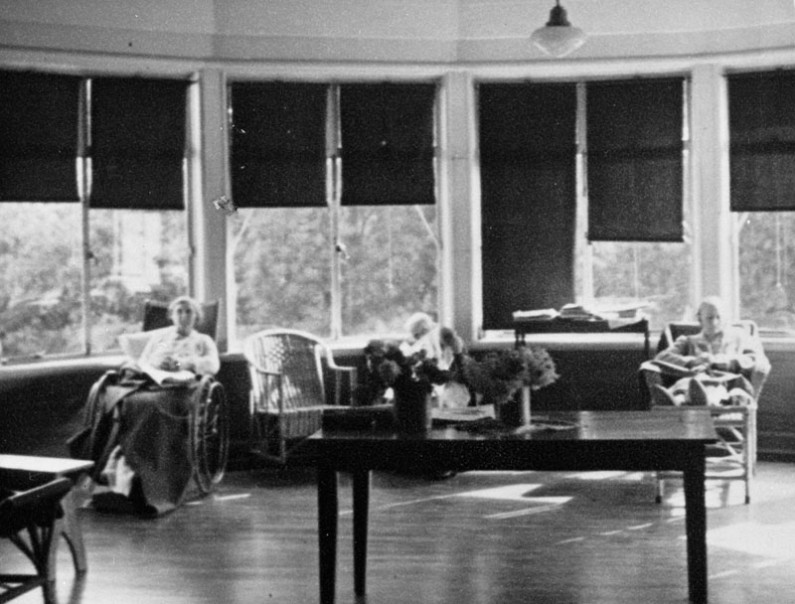The history of Waikato Hospital part 2
An Old Men's Refuge

Lounge in Ward 18 at Waikato Hospital c. 1948
In 1887, the Inspector-General of Hospitals reported that there was a need for a refuge for elderly people at Waikato Hospital.
Throughout the 1880s and 1890s, demand for aged care and welfare services steadily increased. A major social welfare report identified that, between 1880 and 1920, a large portion of those living in poverty were elderly. Those without the support of family or friends became heavily reliant on the community or government. 1 Institutions such as refuges took on the role of housing them, though conditions were often harsh and uncomfortable. Elderly people suffering from dementia were frequently sent to mental asylums. 2
Several social and demographic factors meant that older men presented more of a challenge than women. The colony had a significant gender imbalance, with many more male than female immigrants, many of whom never married. These men were often less able to care for themselves and less likely to have family or friends willing to take them in.
A 1929 Waikato Times article reflected on this issue, drawing comparisons with other cultures:
"Of course, if we were as civilised and humane as the Chinese, there would be very few to go into old men's homes for in China some distant relative will practically always find a place in his home for the white-haired clan. If we only took time to think, there might be some way we outsiders could bring a little more sunshine to those in the winter of life." 3
At Waikato Hospital, elderly male residents were expected to work in return for board and lodging. Able-bodied men tended the orchard and vegetable garden. When the windmill-powered water pump broke down, the men were instructed to pump water manually. Those unwilling to contribute were not welcome. One resident received a letter from the hospital board’s secretary warning:
"I must request you to take your share of the work of the Refuge and unless you do so I shall have to report you to the Board. The fact of the Board receiving the amount of your pension does not mean that you are to be kept in idleness. You can leave the institution and support yourself outside if you like, but while you are an inmate you must observe the rules." 4
By the early 20th century, rest homes began to emerge as more appealing alternatives. Some were established specifically for returned soldiers. Over time, the population began to shift, and women came to outnumber men. New Zealand eventually recorded one of the highest rates of rest home residency in the Western world. 5
